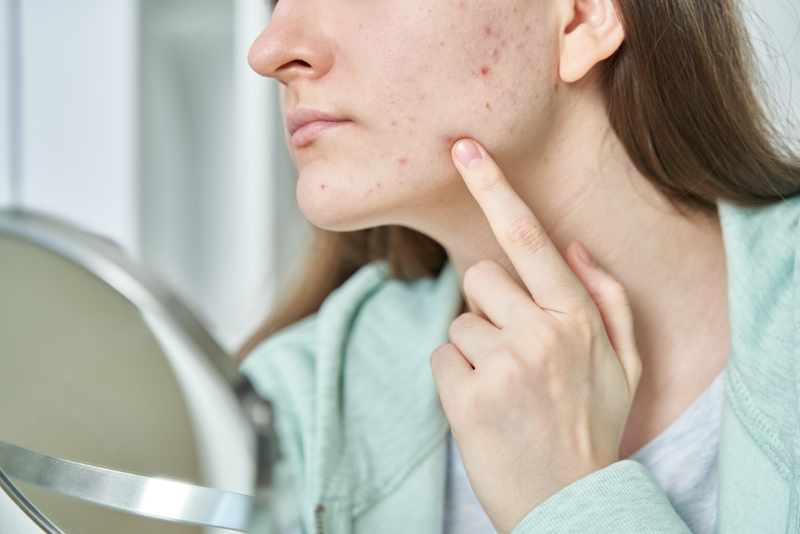Hormone imbalance is a common health issue that affects millions across Canada. While it is widely recognized, it is often misunderstood and overlooked. This comprehensive guide aims to clarify this complex health concern, exploring its causes, symptoms, and effective management strategies for Canadians looking to regain balance and improve overall health.
What is Hormonal Imbalance?
Hormone imbalance is a condition where there is an excess or deficiency of one or more hormones in the bloodstream. Hormones are chemical messengers that play a crucial role in regulating most major bodily processes, including metabolism, growth and development, sexual function, mood, and sleep. Therefore, an imbalance can significantly impact various bodily functions and overall health, leading to a range of symptoms and health complications.
Causes of Hormonal Imbalance
Hormone imbalances can be triggered by a wide array of factors. Here are some of the most common ones:
- Stress: Chronic stress can throw off your body’s delicate hormonal balance. In Canada’s fast-paced lifestyle, prolonged stress leads to higher cortisol levels, which can disrupt the balance of other hormones in your body.
- Poor eating habits and a lack of exercise: In Canada, unhealthy eating habits and a sedentary lifestyle can negatively affect hormone production. High sugar consumption, for example, can lead to insulin resistance, which is linked to many hormone-related issues. A lack of physical activity can also lead to weight gain, further exacerbating hormonal imbalances.
- Environmental toxins: Certain chemicals, such as those found in plastics, insecticides, and personal care products, can alter hormone activity and cause an imbalance.
Symptoms of Hormonal Imbalance
Hormone imbalance can cause a wide range of symptoms, depending on which hormones are out of balance. Some of the most prevalent symptoms are:
Acne: An overproduction of sebum, an oily substance that helps protect the skin, can lead to acne. This overproduction is often linked to imbalances in hormones such as testosterone and estrogen.
Hair loss: Hormone imbalances, particularly those involving androgens (male hormones), can lead to hair loss in both men and women. This is because androgens can shrink hair follicles, leading to thinning hair or baldness.
Weight gain: Hormone imbalances, especially those involving insulin and stress hormones like cortisol, can lead to weight gain and difficulty losing weight. Insulin plays a key role in regulating blood sugar levels, while cortisol is involved in the body’s response to stress. Imbalances in these hormones can lead to increased appetite, cravings for unhealthy foods, and accumulation of body fat, especially around the abdomen.

How can I get tested for hormone imbalance?
To get tested for hormone imbalance, you should follow these steps:
- Consult a healthcare provider: Schedule an appointment with your doctor for a physical examination. Be prepared to describe your symptoms and the time frame in which they occurred. Bring a list of all the medicines, vitamins, and supplements you’re currently taking.
- Physical examination: During a physical exam, your healthcare professional will examine your reproductive organs for masses, growths, or other changes.
- Blood tests: Blood tests can measure hormone levels. These tests can identify fertility issues, where you are in your menstrual cycle, and whether you are entering perimenopause. Blood testing can also help diagnose medical disorders like thyroid illness and diabetes.
Remember, there’s no single test available to help doctors diagnose a hormonal imbalance. In most situations, healthcare providers make a diagnosis based on hormone test findings, as well as symptoms, medical history, and other test results.

It’s important to consult with a healthcare provider if you suspect you have a hormone imbalance. They can guide you through the process and interpret the results of any tests. If necessary, they can refer you to a specialist for additional examination and treatment.
How to Fix Hormonal Imbalance
Addressing hormonal imbalance involves a multi-faceted approach:
- Healthy diet: A healthy diet high in fruits, vegetables, lean proteins, and whole grains can help control hormones. Certain foods, such as flaxseeds, soy, and fatty fish, are believed to help balance hormones.
- Regular physical activity: This can help balance hormone levels and alleviate symptoms of hormone imbalance. Exercise lowers insulin levels and increases insulin sensitivity, which can help avoid weight gain and other health issues caused by hormone imbalance.
- Stress Management: Meditation, deep breathing, and yoga are all techniques that can help you relax and regulate your hormones. Stress management is critical because persistent stress can cause cortisol overproduction, which disrupts the balance of other hormones in the body.
- Online Dermatologist: For Canadian residents experiencing symptoms like acne and hair loss due to hormonal imbalance, consulting an online dermatologist canada can be a convenient and effective solution. These professionals can provide personalized advice and treatment plans to manage these symptoms.

Final Thoughts
For Canadian residents experiencing symptoms like acne and hair loss due to hormonal imbalances, consulting an online dermatologist can be a convenient and effective solution. These professionals offer personalized advice and treatment plans tailored to your needs. Whether it’s topical treatments, medications, or lifestyle adjustments, an online dermatologist can guide you on the best strategies to manage your symptoms and improve your skin and hair health from the comfort of your home.
FAQs
Can hormonal imbalance cause mood swings?
Yes, hormonal imbalances can lead to mood swings, as hormones play a key role in regulating mood and emotions.
Is hormonal imbalance common during menopause?
Absolutely, hormonal imbalances are quite common during menopause due to significant fluctuations in estrogen and progesterone levels.
Can hormonal imbalance cause weight gain?
Indeed, hormonal imbalances, particularly those involving insulin and stress hormones, can contribute to weight gain and difficulty losing weight.
Can diet and exercise help manage hormonal imbalance?
Definitely, a healthy diet and regular exercise can help regulate hormone levels and alleviate symptoms of hormonal imbalance.
